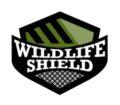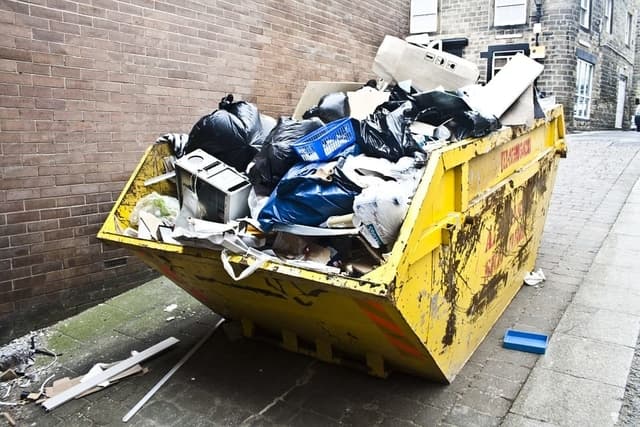Are raccoons tipping over your trash and making a mess of your lawn? Raccoons can be a real pain, and putting up with their mischief can be frustrating. They can single-handedly turn your life into a living hell keeping up with their antics in your trash. When it comes to imagination and persistence, they are second to no wild animal, unless of course, it’s a squirrel on your bird feeder.
Raccoons make great climbers, jumpers, swimmers and are also fast on their feet. Armed with five-toed paws, raccoons are agile and dexterous and have the capability of maneuvering every human mechanism used to deter them. When they are not making a mess in your lawn by tipping over the garbage can, they are probably climbing into your attic or breaking into your garden.
Raccoons, unlike many wild animals, do not hibernate during the winter; they will confine themselves in a den for a short period during harsh weather. In the wild, they live in hollowed trees during the warm part of the year. Baby raccoons will stay in a family close to one year, which normally consists of many youngsters.
What do Raccoons Eat?
Raccoons just like humans are omnivorous, the main difference between the two is raccoons prefer to scavenge rather than work for their food. Raccoons will eat just about anything they can get their paws on, including the contents of your garbage can.
In the wild, raccoons feed on birds, insects, small animals, fish, frogs, snakes, and nuts. In urban dwellings, raccoons have found a new taste for garbage, pet food, and garden plants. Raccoons are attracted to human dwellings by gardens, bird feeders, and even fish ponds.
Like most animals in the wild, raccoons have a strong sense of smell, and that is why using repellents can sometimes help keep them away preventing them from damaging your garden or property.
Even though raccoons in the wild prefer areas that have dense forests and a water source, they are more likely to raid your garden or trash since it offers an easy source of food. They will be more comfortable if they have a source of water and a forest near your garden. Raccoons have a good memory and are quite the opportunistic animals, once they get used to feeding on your trash, they will keep coming back, and in larger numbers at each interval. Therefore, if you suspect your trash cans are being raided by raccoons, contact your local raccoon removal company as soon as possible.
What attracts raccoons to trash?
In theory, we are responsible for attracting raccoons to our trash. With the ever-growing population, and the urbanization of their natural habitat raccoons have quickly adapted and thrived within human dwelling and cities. Raccoons are found throughout Canada. In domestic environments, raccoons are a real nuisance, therefore getting to understand what attracts them to your trash can help you solve the problem by trying to minimize some of those attractive features.
Food sources
One of the reasons raccoons are attracted to your trash is because it presents a scavenging opportunity. Raccoons are drawn to easy food sources, and if you regularly take out your trash at night when they are most active, they will gladly jump at the opportunity. Leaving pet food behind in your property will also attract these pesky critters. It is important to note that raccoons have a heightened sense of smell, and it is the scent of food that attracts them to your trash can.
Raccoons will also be attracted to your property if it offers opportunities to make a home. During winter, the female raccoon is always on the lookout for a safe place to nurse her young. If your property has low hanging branches and scattered structures, raccoons will run at the opportunity to make a nest in your structures.
Are raccoons dangerous?
The moment you notice raccoons in your property take the necessary steps to get rid of them by calling your local wildlife removal service. Raccoons might seem harmless and cute, but they are dangerous to both your family and pets.
Wild raccoons are territorial and aggressive if agitated they will attack biting or scratching their victims. A rabid raccoon will spread rabies to humans and pets, making them a potential health hazard. They also have the capability of spreading viruses through pathogens that are found in parasites they carry or their droppings.
Raccoons can also cause serious damage to building and structures when they build their dens and nests. They are very destructive animals. If they get to your attic, they will soak your insulation with urine and feces. They will also destroy your structures looking for nesting material that will costs property owners thousands of dollars in repairs.
How to keep raccoons out of your garbage
To effectively keep raccoons out of your trash cans, here are some practices you should follow when using your garbage bin.
- Always ensure your trash bin is sturdy, strong and in the best shape. If you reside in a region with plenty of raccoons and wildlife, you need to invest in a garbage can that is specially designed to keep off wild animals.
- When using your bin, make sure you don’t overfill it. It is important that nothing overhangs from the bin. Raccoons have a great sense of smell, hanging food bags and trash will quickly raise their senses.
- Makes sure your trash cans are always clean and tidy. A rule of thumb is to ensure you clean them regularly after every disposal. This action helps remove any lingering scents or pieces of food.
- Double bag your trash. Make sure there are no holes, and if possible double check. Any food droplets left or that falls off during disposal to the garbage truck will show the raccoons that you have an interest in feeding them. Smelly trash will also need to be double-bagged.
- You could use rubber strap cords to tie down your garbage can lid. This method works best in areas with massive disturbances from raccoons. If using bungee cords is too difficult, try placing something heavy on top of your garbage can lid, it will help.
- Ensure that your trash cans are stored in the level ground. It doesn’t matter if your trash can is in the best condition, if stored on a slope, raccoons could easily tip it over and forage through its contents.
Apart from being a nuisance, raccoon poses a lot of threats including health, and structural damage. They might look cute but should not be tolerated in your property under any circumstance. The moment you notice raccoon activity in your trash can, contact your local wildlife removal service such as raccoon removal Toronto. They will be in a better position to give you advice on the steps you need to take to get rid of your raccoon problem.

